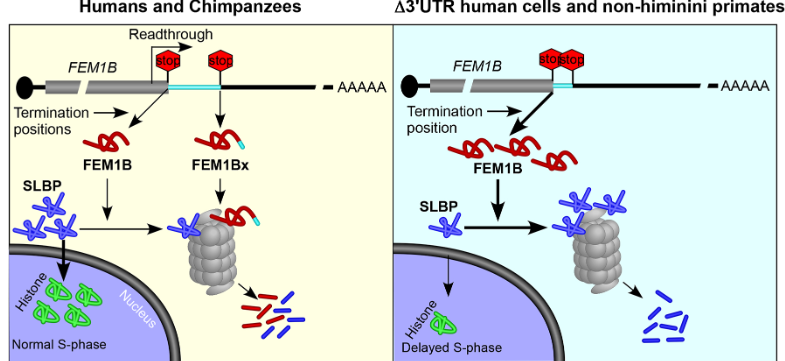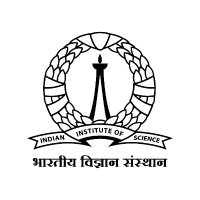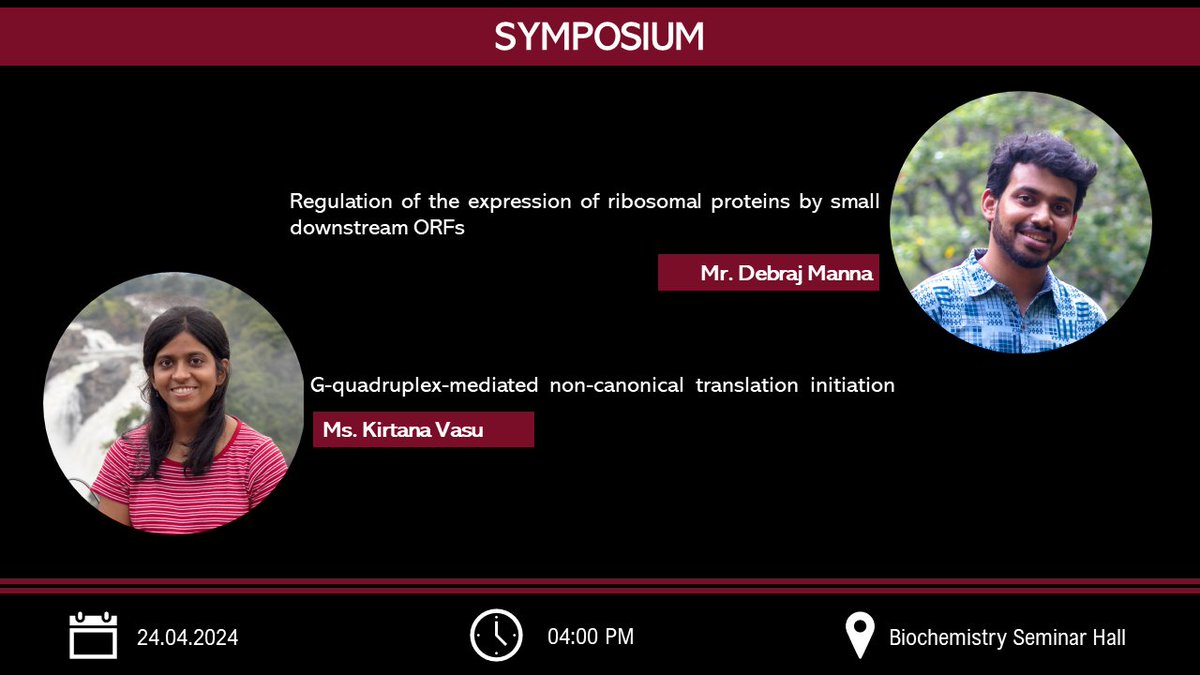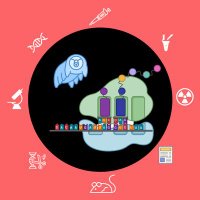
Eswarappa Lab IISc
@eswarappalab
Traversing through the regulation of translation at its start and stop is our mission. Looking into teeny-tiny tardigrades is our passion. @iiscbangalore
ID: 1466354820550316032
https://sites.google.com/view/dr-sandeep-m-eswarappa/home?authuser=0 02-12-2021 10:34:03
134 Tweet
524 Followers
94 Following

Today we are organising a symposium. Speakers: 1. Mr. Md Noor Akhtar 2. Ms. Gayatri M Chairperson: Ms. Debaleena Kar (Debaleena Kar) Venue: BC Seminar Hall Time: 4.00 p.m


#NewPaperAlert Read our latest Journal of Biological Chemistry paper to find out how the stop codon readthrough of Neuronatin (NNAT) mRNA regulates neuronal differentiation in a calcium-mediated manner jbc.org/article/S0021-… Madhuparna Pandit Noor Akhtar Sarthak Sahoo Lekha E M The Biochemical Society IISc Bangalore
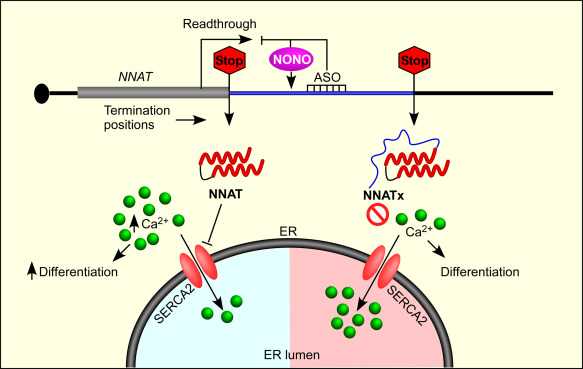

#NewPaperAlert Read our latest Journal of Molecular Biology paper to find out how the kinetics of translating ribosomes determine the efficiency of programmed stop codon readthrough bit.ly/DKSME Debaleena Kar Debraj Manna Lekha E M Anumeha Singh Saubhik Som IISc Bangalore The Biochemical Society
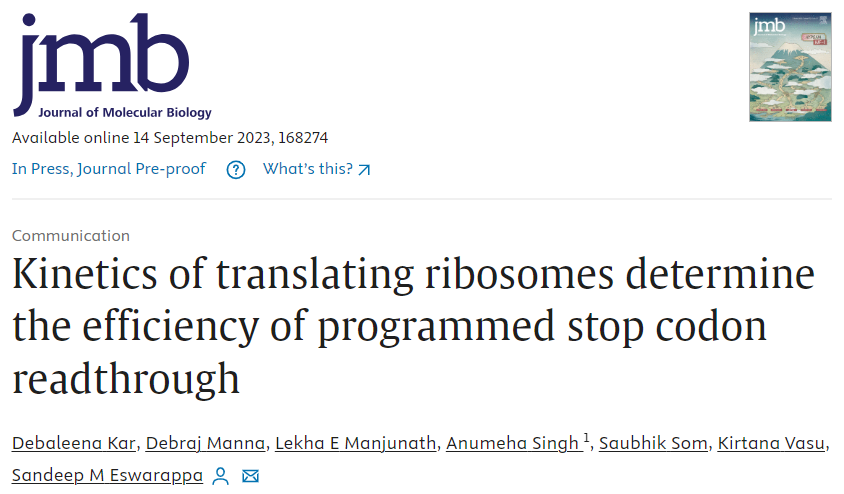

Thrilled to announce that Noor Akhtar has been awarded the Ben Barres Spotlight Award 2023! Congratulations, Noor! 🎊🎉🎆 eLife - the journal The Biochemical Society

Don't forget to tune in to Ben Barres Spotlight Award winner Noor Akhtar's talk on Dec 1. Learn more about his research on FEM1B stop codon readthrough and its effect on the cell cycle. See you there! IISc Bangalore Voices of Indian Academia PhD Voice - Independently Run

Meet the ASAPbio Fellows! Debraj Manna Debraj Manna is a PhD student IISc Bangalore Through the ASAPbio Fellows program, Debraj wishes to learn more about #preprints to fill the information gap that drives some researchers away from preprints.




IndiaBioscience opened its doors to five interns in 2023. This article is a conversation between Ankita Rathore, PhD, Program Manager-Science Communication IndiaBioscience.org, and the interns about their internship experience. Read the entire article 👇 buff.ly/41tKT6c


Had a wonderful and great experience! Learned so many new things at Keystone Symposia on Targeted Protein Degradation. Keystone Symposia Eswarappa Lab IISc Thanks to eLife - the journal for making it possible for me to attend this. eLife Community


#NewPaperAlert Thrilled to present our latest EMBO Reports paper demonstrating a strategy to induce stop codon readthrough in a transcript-selective manner using CRISPR-dCas13 bit.ly/LEMSME Lekha E M Anumeha Singh Sangeetha Devi Kumar Debaleena Kar IISc Bangalore The Biochemical Society
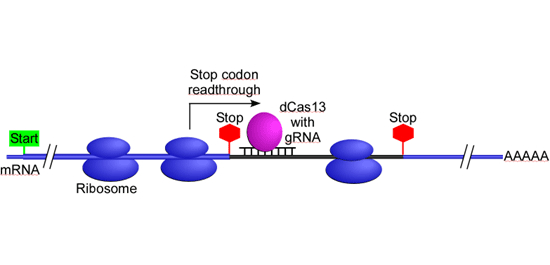


About 7 million years ago, a single nucleotide (T) was inserted in the 3'UTR of the FEM1B gene of humans and chimps. That might have changed the speed of our cell cycle. See our latest paper in the Journal of Cell Science: bit.ly/MdNA Eswarappa Lab IISc J Cell Science
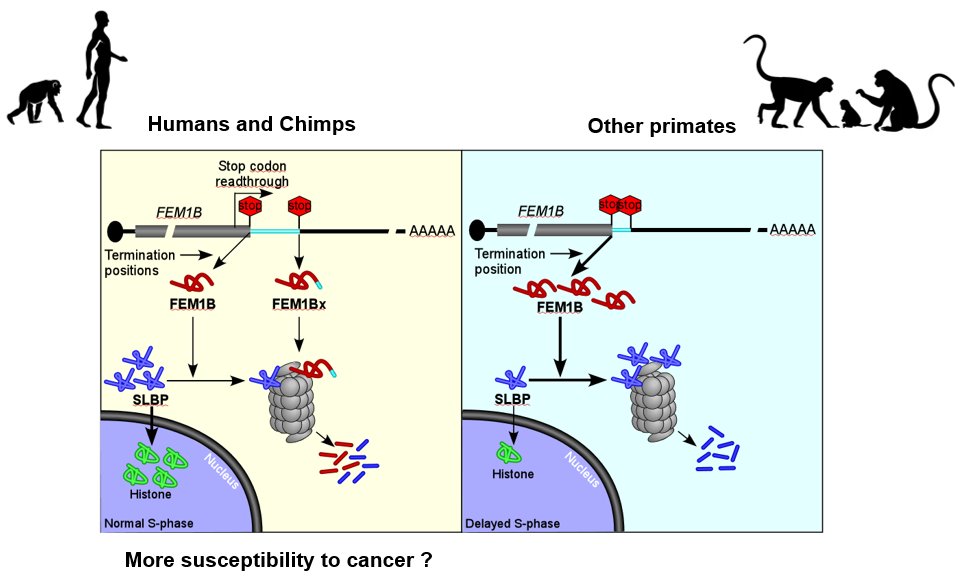

Our study has identified a relatively recently evolved oncogenic translational event that may partly explain why humans are more susceptible to cancer among primates. bit.ly/MdNA Eswarappa Lab IISc J Cell Science IISc Bangalore The Biochemical Society Sandeep M Eswarappa
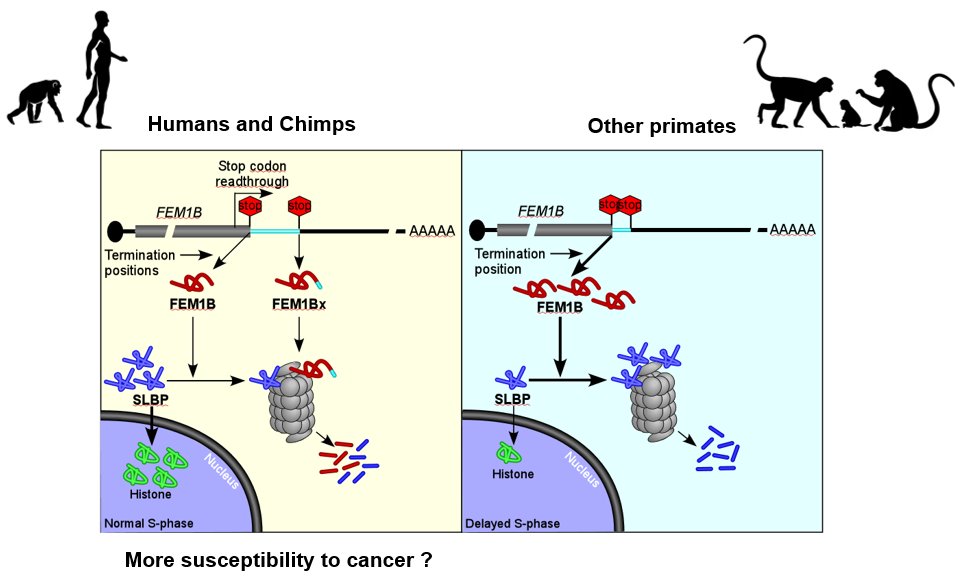

I'm excited to share my First Person Interview article published in JCS, where I discuss the key findings, challenges, and motivations on our recent research titled "Hominini-specific regulation of the cell cycle by stop codon readthrough of FEM1B". J Cell Science Sandeep M Eswarappa

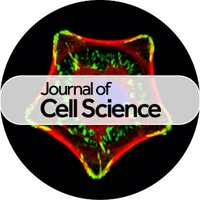
.Noor Akhtar, Sandeep M. Eswarappa and team Eswarappa Lab IISc uncover hominini-specific regulation of the cell cycle by stop codon readthrough of FEM1B #OpenAccess #ReadAndPublish journals.biologists.com/jcs/article/13…
